Phobia is caused by experiencing extreme, irrational fear about a living being, situation, event, object or location. Often, a phobia will cause a person to live his or her life in a way that focuses on avoiding what they consider to be dangerous. Imagination is greater than the reality that results in the cause of terrorism is more harmful than reality.
Phobias are mental illnesses that can be diagnosed. Whenever they encounter the source of their phobia, the person experiences intense distress. Sometimes, this can result in panic attacks and make them unable to function normally.
An estimated 19 million Americans suffer from phobias.
Read: COVID Anxiety Syndrome
What is phobia?
A phobia is a type of anxiety disorder that involve excessive and irrational fear reaction. An individual who suffers from a phobia may experience intense dread or panic whenever they encounter their source of fear.
An object, situation or place can cause fear. Phobias are usually associated with something specific as opposed to general anxiety disorders.
As a result of a phobia, someone may experience annoyance, discomfort, or even severe disability. The phobia sufferer is often aware that their fear is unreasonable but unable to combat it. Having such fears may negatively affect school, work and relationships.
Check: Obsessive Compulsive Disorder (OCD).
Phobia causes
Phobias can be caused by genetics and the environment. Anxiety disorders are seen more frequently in children whose close relatives suffer from them. Almost drowning and other distressing events can cause phobias. Phobias can be triggered by the presence of confined spaces, animal or insect bites and extreme heights.
People suffering from chronic medical conditions are more likely to have phobias. Traumatic brain injuries often cause phobias. Psychological disorders such as depression and substance abuse are also connected to phobias.
Unlike serious mental disorders like schizophrenia, phobias have different symptoms. In schizophrenia, you may experience psychotic symptoms, such as delusions, hallucinations, neurotic symptoms, paranoia, anhedonia and disorganization.
Even though phobias are irrational, their sufferers pass reality tests.
Also, check: Side Effects of Overthinking
Phobia types
It is common to use the word phobia to describe a fear of one particular trigger. However, according to the American Psychiatric Association (APA), there are three types of phobia. These include:
- Specific phobia
- Social phobia
- Agoraphobia
Specific phobia
Specific phobias are excessive and unreasonable fears of situations or objects that pose little real threat but cause anxiety and avoidance.
When you give a speech or take a test, you may feel brief anxiety. Specific phobias, however, can last for years and cause intense psychological and physical reactions, affecting your ability to function normally at school, at work and in social situations.
Related: Self Phobia
Social phobia
Social phobia or social anxiety is the fear of being humiliated publicly, judged by others, or being singled out in a social situation. Someone with social anxiety fears large social gatherings. It differs from shyness.
Agoraphobia
Agoraphobia occurs when a person feels like they might not be able to escape from a situation where he or she is in extreme panics, such as in a lift or outside of the home. Fear of open spaces is commonly misunderstood, but it can also refer to being restricted in a small space, such as an elevator, or being on public transport.
People suffering from agoraphobia are more likely to suffer from panic disorder too. Because of chronic health conditions, they are scared that they will have a medical emergency in a public setting or an area with no help available.
Psychiatric diagnoses such as social anxiety and agoraphobia are often considered complex phobias, due to the difficulty of diagnosing their triggers. It is also harder for those with complex phobias to avoid triggers, such as being in a large crowd or leaving the house.
A phobia can be diagnosed when a person starts facing fear every day. These reactions are much more intense than normal fear reactions. When a person has a phobia, they feel overwhelming anxiety and avoid anything that will trigger their anxiety.
Also, check: Major Depression Disorder
Other types of phobias
A phobia is a painful fear that interferes with daily life. Many people are afraid of certain situations and objects, but truly phobic fears are much more severe. The following are some more common types of phobias:
Glossophobia
A performance anxiety disorder can happen when you are afraid to speak in front of an audience. Patients who have this phobia are physically ill whenever they even contemplate being in front of a crowd. Therapy and medication can both be used to treat glossophobia.
Acrophobia
With this phobia, people have fear of heights. This fear makes people avoid bridges, mountains, or the top floors of buildings. They may experience dizziness, vertigo, sweating, and feel as if they will pass out or lose consciousness.
Claustrophobia
Claustrophobia is typically caused by enclosed or tight places. If you are experiencing severe, riding in automobiles or elevators may be especially difficult for you.
Aviophobia
The fear of flying is commonly known as aviophobia.
Dentophobia
Dental phobia refers to a fear of dental procedures or dentists. In most cases, this fear is caused by a bad experience at the dentist’s office. This may harm you if you are unable to obtain the necessary dental care.
Hemophobia
The phobia is related to blood or injury. The hemophobia patient might faint if they come into contact with another person’s blood or even with their blood too.
Arachnophobia
This means being afraid of spiders.
Cynophobia
This means being afraid of dogs.
Ophidiophobia
This means being afraid of snakes.
Nyctophobia
It is a phobia of the dark or of the nighttime. Most often, it begins as a child’s fear. It becomes a phobia when it progresses beyond adolescence.
Many other phobias are also specific. Any kind of phobia can develop. Additionally, society changes over time, which leads to an increase in potential phobias. An example would be the fear of not having a mobile or computer/laptop.
The fear of losing touch with technology is described as a pathological fear in one paper.
Related: Nightmare Disorder
Risk factors
There is a risk of developing phobias for people who have a genetic predisposition to anxiety. Only certain phobias seem to be associated with age, gender and socioeconomic status. Animal phobias are more common in women.
The likelihood of small children or low-income individuals having social phobias is higher. Men are more likely than women to have phobias of dentists or doctors.
Symptoms of phobia
Some symptoms are related to phobias. Following are the common types of phobias:
- An uncomfortable feeling of anxiety caused by the source of fear
- An urge to avoid the source of the threat at all costs
- Functioning improperly in the presence of the trigger
- An inability to control the feelings of fear combined with an acknowledgment that the fear is unreasonable, and exaggerated

Phobic people are likely to feel panic and intense anxiety when confronted with their phobia’s object. This sensation can have physical effects such as:
- Heart pounding or racing
- Breathing difficulties
- Rapid speech or difficulty speaking
- Dry mouth
- Upset stomach
- Nausea
- High blood pressure
- Feelings of tightness or pain in the chest
- Feeling of choking
- Shaking or trembling
- Feeling dizzy or lightheaded
- Sweating excessively
- Feeling of dread
People with phobia anxiety disorder don’t necessarily need panic attacks to be properly diagnosed, however. The experience of anxiety is triggered simply by thinking about the phobia object.
Among young children, parents often observe clingy behavior, crying, or hiding behind the legs of parents or objects. The child may throw tantrums if he or she is upset.
Read: Stranger Anxiety
Phobia’s impact on the brain
It is possible to store and recall events that are potentially deadly in certain regions of the brain. People are more likely to recall stressful memories later on in life, even more than once, if they face a similar situation as they age. This results in the same effect on the body.
During phobia in which the fear and stress areas of the brain repeatedly retrieve the terrifying event inappropriately.
Researchers have identified the amygdala in the brain as a common location for phobias. It is behind the pituitary gland. Amygdala stimulation can cause “fight-or-flight” hormone release. This causes a state of high alertness and stress in the body and mind.
Recommended: Multiple Strategies To Control Overthinking
Treatment of phobia
Most phobia sufferers are well instructed about their disorder and can overcome it. This is very helpful when diagnosing.
If a phobia has already been identified, consulting a psychologist or psychiatrist is the first step toward treatment.
Many people who have phobias do not have severe symptoms, so they simply avoid the source of the fear. Many specific phobias are not treated because they can usually be managed.
In some cases, like with complex phobias, it is impossible to avoid the triggers. Mental health professionals can help in these situations.
Almost all phobias are curable with proper treatment. Each person with a phobia needs a different type of treatment. Treatment must be customized to each patient to be effective.
Behavioral therapy, medications, or a combination of both can often be recommended by doctors, psychiatrists, and psychologists. During therapy, people are taught to reduce their anxiety and fear symptoms and to control their reactions to the phobia’s object.
Read: How To Get Over a Phobia
Medications
Here are some medications that are very effective for the treatment of phobias.
Beta blockers
Physical symptoms of anxiety that are associated with phobias can be decreased with this treatment. There may be side effects such as indigestion, insomnia, fatigue and cold fingers.
Antidepressants
People suffering from phobias are prescribed serotonin reuptake inhibitors (SSRIs). This can result in better moods since they affect serotonin levels in the brain. Initial side effects of SSRIs may include nausea, insomnia and headaches.
Social phobia could be treated by a monoamine oxidase inhibitor (MAOI) if the anti-depressant drugs do not work. On MAOI, some food types must be avoided. An initial side effect may be dizziness, nausea, insomnia, restlessness and headaches.
Clomipramine or Anafranil (tricyclic antidepressants) have also been shown to help phobia symptoms. There can be initial side effects including sleepiness, dry mouth, constipation, blurred vision, irregular heartbeat, urination problems and tremors.
Related: How to Overcome Fear from Mind and Heart
Tranquilizers
A tranquilizer such as benzodiazepines might be prescribed to treat a phobia. Anxiety symptoms may be reduced by these medications. Those who have a history of alcohol abuse should not take sedatives.
Benzodiazepines are being warned about more by the Food and Drug Administration (FDA) in 2020. Physical dependence can develop from using these drugs, resulting in life-threatening withdrawal.
If they are combined with opioids, alcohol, or other substances, they can lead to death. These drugs should be used according to the doctor’s instructions.
Behavioral therapy
A variety of therapeutic approaches are available for treating phobias.
Desensitization or exposure therapy
It can be helpful for people who have phobias to modify their response to something that causes fear. Over time, they gradually become aware of the cause of their phobia. To reduce the fear of flying, a person with aerophobia may take the following steps under professional guidance:
- First, they will consider flying.
- The therapist will instruct them to look at photographs of planes.
- He or she will go to the airport.
- A practice flight in a simulated airplane cabin will escalate the situation.
- At last, they will onboard.
Read: How to Stop a Panic Attack
Cognitive behavioral therapy (CBT)
Doctors, therapists and counselors help people with phobias to learn ways to understand and react to the source of the phobia. By doing so, you can cope more easily. A person suffering from a phobia can benefit most from CBT because it teaches them to control their feelings and thoughts.
The therapy aims to identify and change negative beliefs, thoughts, and behaviors associated with the phobia. Virtual reality technology is used in cognitive behavioral therapy (CBT) for exposing people to the sources of their phobias safely.
Takeaway
An individual can suffer from genuine distress as a result of worries and phobias. The majority of these fears can be treated, and the source of fear can sometimes be avoided.
You should never be afraid to ask for help if you suffer from phobia anxiety disorder. A great resource for finding a therapist is the Anxiety and Depression Association of America (ADAA). You can also find a variety of talks on coping with specific phobias there.
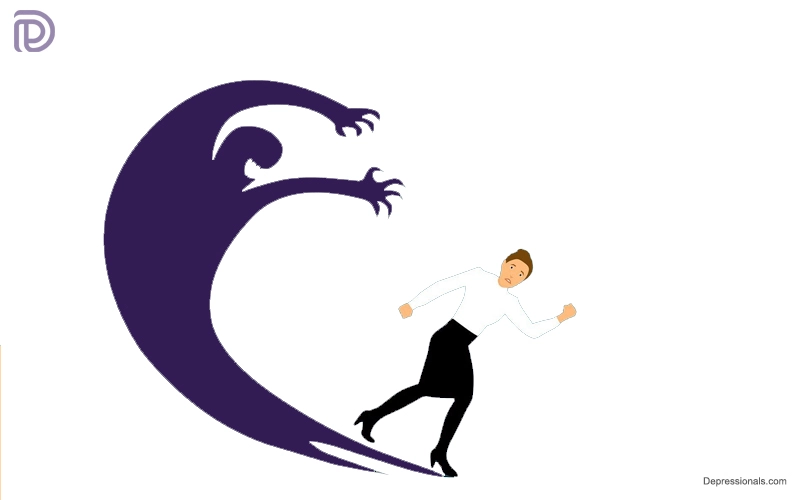
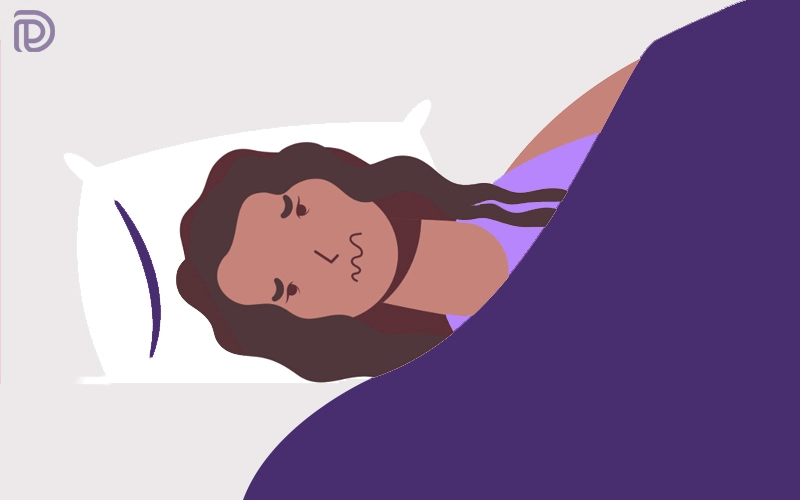
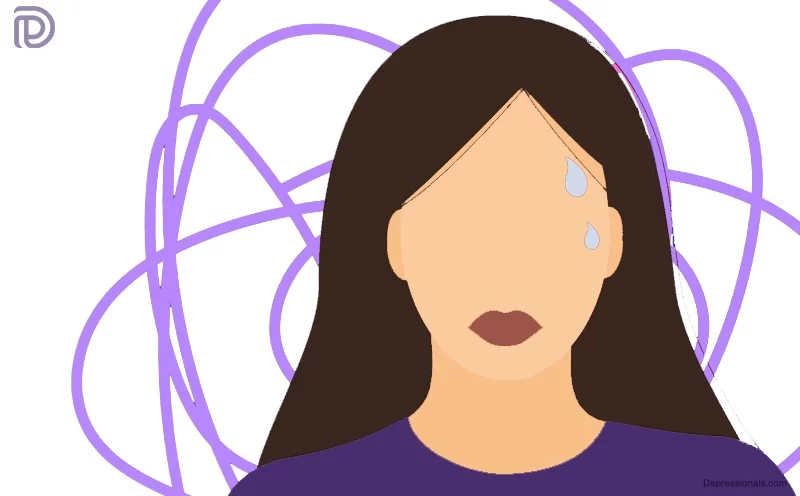
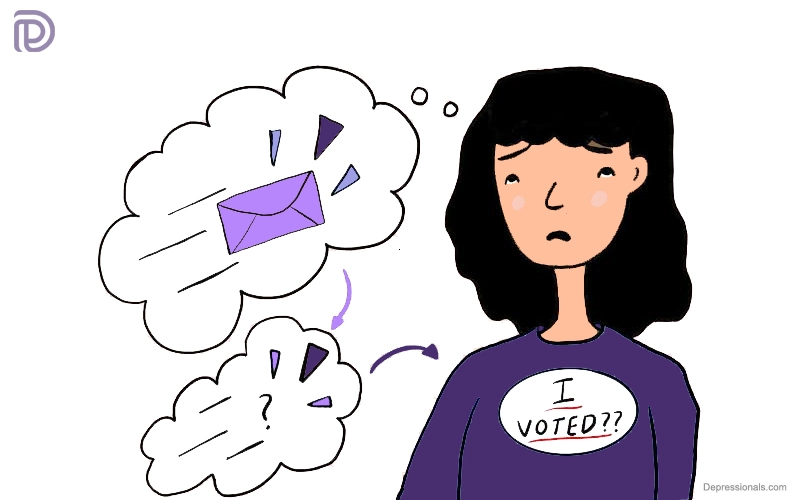
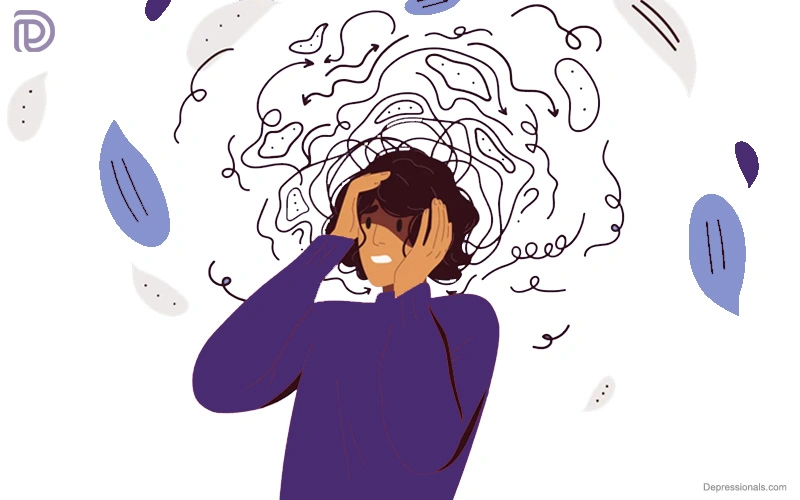

You’ve been really helpful to me. Thank you!
Wonderful work! This is the type of information that should be shared around the net. Shame on Google for not positioning this post higher! Come on over and visit my site . Thanks =)
I?m impressed, I must say. Really hardly ever do I encounter a blog that?s each educative and entertaining, and let me tell you, you have got hit the nail on the head. Your concept is outstanding; the problem is one thing that not enough individuals are speaking intelligently about. I am very happy that I stumbled across this in my search for one thing referring to this.
Thanks for your posting.
F*ckin? awesome things here. I?m very glad to see your post. Thanks a lot and i’m looking forward to contact you. Will you kindly drop me a e-mail?
It is actually a great and helpful piece of info. I?m happy that you just shared this helpful info with us. Please stay us up to date like this. Thank you for sharing.
Thanks for your helpful post. As time passes, I have been able to understand that the particular symptoms of mesothelioma cancer are caused by the build up of fluid relating to the lining of your lung and the chest muscles cavity. The disease may start within the chest region and multiply to other limbs. Other symptoms of pleural mesothelioma include weight-loss, severe breathing trouble, vomiting, difficulty ingesting, and infection of the neck and face areas. It ought to be noted that some people having the disease never experience every serious signs or symptoms at all.
Thanks for writing this article. It helped me a lot and I love the subject.
Thank you for writing this post. I like the subject too.
One thing is the fact one of the most common incentives for making use of your card is a cash-back as well as rebate provision. Generally, you’re going to get 1-5 back for various purchases. Depending on the credit card, you may get 1 back again on most acquisitions, and 5 back again on expenditures made on convenience stores, filling stations, grocery stores and also ‘member merchants’.
Dude these articles have been really helpful to me. They really helped me out.
Thank you for your articles. They’re very helpful to me. May I ask you a question?
Hey, you used to write great, but the last few posts have been kinda boring? I miss your great writings. Past several posts are just a little bit out of track! come on!
Thank you for your articles. I find them very helpful. Could you help me with something?
Thank you for your excellent articles. Would you be able to help me out?
Please provide me with more details on the topic
Please tell me more about this
Thank you for posting such a wonderful article. It helped me a lot and I adore the topic.
You’ve been very helpful to me. Thank you!
It was really helpful to read an article like this one, because it helped me learn about the topic.
Your articles are very helpful to me. May I request more information?
Thanks for posting. I really enjoyed reading it, especially because it addressed my issue. It helped me a lot and I hope it will help others too.
What is it about? I have some questions dude.
How can I find out more about it?
Thank you for your articles. They are very helpful to me. May I ask you a question?
Thank you for your excellent articles. May I ask for more information?
It would be nice to know more about that. Your articles have always been helpful to me. Thank you!
Your articles are extremely beneficial to me. May I request more information?
Dude these articles are amazing. They helped me a lot.
Thank you for your help. I must say you’ve been really helpful to me.
Hi there! This post couldn’t be written much better! Going through
this article reminds me of my previous roommate! He continually kept preaching about
this. I will send this article to him. Pretty sure he’s going to have a
great read. Many thanks for sharing!
I like the helpful information you provide to your articles.
I’ll bookmark your blog and check again right here regularly.
I’m fairly sure I will be told a lot of new stuff
right right here! Good luck for the following!
I do trust all the ideas you have presented in your post. They’re very convincing and will definitely work. Still, the posts are very quick for novices. Could you please extend them a little from subsequent time? Thank you for the post.
Thanks for your publication.
Pretty component of content. I just stumbled upon your weblog and in accession capital to assert that I get actually enjoyed account your weblog posts. Anyway, I’ll be subscribing on your augment and even I achievement you access persistently rapidly.
hi!,I like your writing so much! share we communicate more about your article on AOL? I need a specialist on this area to solve my problem. May be that’s you! Looking forward to see you.
Admiring the dedication you put into your blog and in depth information you offer. It’s awesome to come across a blog every once in a while that isn’t the same outdated rehashed information. Excellent read! I’ve bookmarked your site and I’m adding your RSS feeds to my Google account.
Tremendous things here. I am very satisfied to peer your post. Thank you a lot and i am having a look ahead to touch you. Will you kindly drop me a e-mail?
great post, very informative. I wonder why the opposite experts of this sector do not notice this. You must continue your writing. I’m confident, you’ve a huge readers’ base already!
Hello, Neat post. There is an issue along with your site in internet explorer, might test this?IE still is the market leader and a big component of other people will leave out your wonderful writing due to this problem.
We stumbled over here coming from a different page and thought I should check things out. I like what I see so now i am following you. Look forward to looking over your web page repeatedly.
I really enjoy reading on this web site, it has fantastic articles. “A man of genius has been seldom ruined but by himself.” by Samuel Johnson.
Excellent weblog here! Additionally, your website lots up very fast! What host are you the usage of? Can I get your affiliate link on your host? I desire my web site loaded up as quickly as yours lol
Hello, I’m very impressed by this piece of writing. Very detailed written.